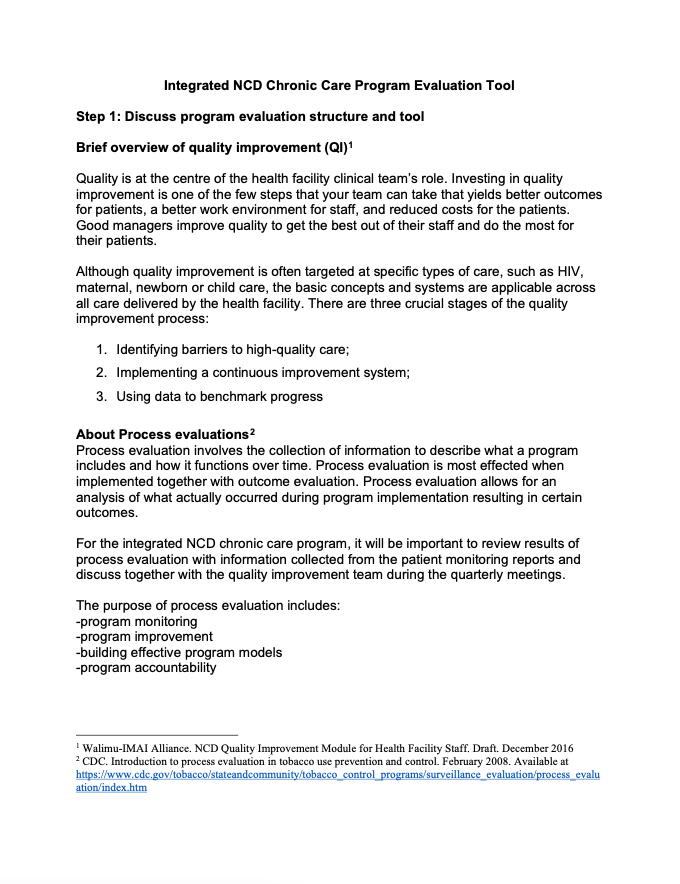Emergencies and severe illness
Uganda
In Uganda, the Quick Check+ was field tested in 2009 and iteratively improved since then, with extensive training at district and regional hospital level to improve management of all severely ill adult patients and support clinical responses to HIV, H1N1, Ebola/Marburg and COVID-19.
Working with Walimu and the Ministry of Health, several intercountry training of trainers were held, the latest in 2018 in Uganda. More than 500 health workers in 32 district and regional hospital clinical teams were trained, with the clinicians (doctors, clinical officers, nurses), a manager, and auxiliary staff trained both separately by cadre then together as a team to respond to realistic cases presented by expert patient-trainers and to develop action plans to improve each hospital’s care. The Clinician’s role in disease surveillance and response was introduced as a short module at the end of the 5 day training, emphasizing the general concepts of disease surveillance and response and the clinician’s role, differential diagnosis, and viral hemorrhagic fevers. This module was taught collaboratively with the MOH IDSR team.































